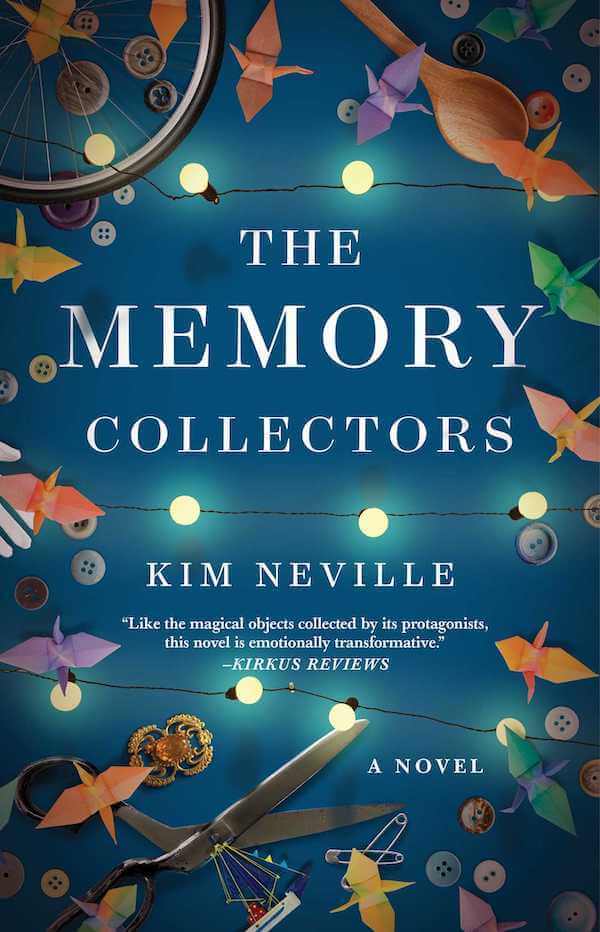Fabulism Unbound: Neil Gaiman, Gabriel García Márquez, Alice Hoffman, Charles de Lint, and Haruki Murakami And The Books That Should Be On Every Bookshelf
I’ve always loved fabulism—fiction that is firmly grounded in everyday life but with elements of magic. My favorite authors play with our notions of realism, and understand that as much as we’d like to believe otherwise, reality is always subjective and open to interpretation. Also, if I’m being honest, I’m in my forties but I still wish that magic were real, and I love stories that make me feel as though it could be.

In thinking about my own writing and how it has developed over time, I found myself reflecting on those authors whose work has influenced my own. This list isn’t exhaustive, but it follows my reading life from my late teens until I began writing seriously in my thirties. Each of these authors has provided me with inspiration over the years, and they became markers along the path of my writing journey, guiding me as I discovered my own voice and style. Their stories have settled deep into my bones, and continue to whisper to me.
Gabriel García Márquez
I mean. You can’t write about fabulism without mentioning the author most often cited as epitomizing the tradition of Latin American magical realism. I discovered García Márquez’s work when I was barely out of high school, and while I’m certain much of the historical context went over my head back then, I was entranced by the way that he seamlessly merged magical and surreal elements into the everyday existences of his characters, elevating already sweeping, epic tales to mythic heights. Almost thirty years later, I still have my paperback copy of One Hundred Years of Solitude. It has survived a dozen moves and as many bookshelf downsizings, and will likely have a place in my collection forever.
Alice Hoffman
You probably think I’m going to mention Practical Magic here, but I didn’t read Hoffman’s beloved classic until a few years ago. Instead, it was some of her earliest books that snuck into my heart and lodged there—The Drowning Season, Fortune’s Daughter, Illumination Night. I found her in my first years of college after a stretch of reading strictly what I understood to be the literary greats (i.e., mostly book by dead white guys). Hoffman’s stories of women and their relationships—of motherhood, sisterhood, friendship and love—felt like coming home. She wrote about the things that mattered to me. I’ve always adored the modern fairy tale quality of her books, and they continue to enchant me.
 Neil Gaiman
Neil Gaiman
Many years ago, a boyfriend put a copy of The Sandman: Preludes and Nocturnes in my hands, promising that even if I thought I didn’t like comic books, this would change my mind. He was right. I was fascinated with how Gaiman wove mythology, folklore and history into something entirely new and utterly unforgettable. Later, the two of us would attend a reading for the release of American Gods. There were perhaps sixty people in attendance and we decided not to wait around for a signature, which is obviously a decision I now regret. That book, which summoned gods both old and new into the modern world, cemented my status as a Gaiman super-fan. (P.S. That same boyfriend continuously insisted that I ought to be a writer, and did everything in his power to encourage me on that path. I married him.)
Charles de Lint
Somehow I made it well into adulthood before a friend turned me on to this fellow Canadian’s urban fantasy books. I loved these stories—particularly the ones set in Newford, an imaginary North American city where the real and the otherworldly exist side-by-side. They are gentle, if sometimes dark, and told with such compassion. The characters in de Lint stories slip easily between worlds, commune with mythic beings, and conjure up magic through music and poetry. His work is charming and hopeful, and in my mid-twenties they were as close to the kind of stories I wished to create as I could find. The Onion Girl, in particular, will always be special to me.
Haruki Murakami
A friend passing through town left his copy of The Wind-Up Bird Chronicle with me. “I think you’ll like this,” he said. Oh, I did. Lost cats, psychics, surrealism, and existential crises? Yes, please. After reading it, I immediately went to my local library to track down every other Murakami book I could get my hands on. I’m drawn to the author’s humor, as well as the ambiguity in his stories. I find them both entertaining and challenging to read. If you enjoy examinations of the greyer areas of life, and don’t always need books to have tidy endings—or even tidy middles—I highly recommend his work.
Kelly Link
I discovered Kelly Link via Neil Gaiman’s blog. This was around the time I turned thirty, and after years of reading and wishing, had finally gotten up the courage to begin writing my own stories. Link’s first story collection, Stranger Things Happen, was smart, funny, dark, and weird, and I became an immediate fan. Imagine my delight when, ten years later, I found myself at the Clarion West Writers Workshop with Link as one of my teachers. Trading ghost stories with her and my classmates in a darkened sorority house remains one of my best memories. I continue to admire her inventiveness and sly humor. Link’s most recent story collection, Get In Trouble, is one of my favorites to lend out to friends searching for a new author to fall in love with.
Bio:
Kim Neville is a graduate of the Clarion West Writers Workshop, where she found the first shiny piece of inspiration that became The Memory Collectors. When she’s not writing she can be found heron-spotting on the seawall or practicing yoga in order to keep calm. She lives near the ocean in Vancouver, Canada, with her husband, daughter, and two cats. The Memory Collectors is her first novel. You can find out more about her work at www.kimneville.com.
